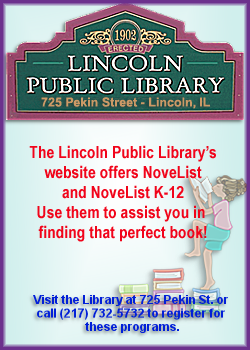Review by
Richard SumrallIn her new book, "10 Make-or-Break Career
Moments," author Casey Hawley writes that "there are key moments in the
course of every career when the right words can make a life-changing,
career-altering difference." These "right words" and the 10 basic response
strategies are the result of her extensive experience in business and
communications. As a consultant to numerous Fortune 500 companies, she
understands the importance that words play in helping you succeed in the
make-or-break moments in your career.
Her strategies are based on 10 different scenarios that occur in the
workplace:
-
The first moment you meet
an executive or key business contact
-
The first moment you meet
the interviewer for your next job
-
The moment you are offered
a job
-
The key moments in a
performance review (including raises)
-
The moment you meet your
new team
-
The moment you are fired
-
The moment a challenge to
your ethics, loyalty or future arises
-
The moment you resign from
a job
-
The moment conflict arises
with a co-worker or business person
-
The moment you are recognized for excellence
Let's take a look at three of these defining moments.
The first moment you meet the interviewer for your next job
The first moments of any interview are crucial to making a favorable
impression. Remember that you are how you look -- dress like your
boss-to-be; get plenty of sleep the night before. Loosen up with some
stress-relieving tips -- breathe deeply to oxygenate your blood flow;
relieve tension with muscle-relaxing exercises. Encourage love at first
sight -- smile, smile, smile! Offer the perfect handshake -- strong and
confident, not a bone-crusher.
The biggest concern in an interview is what to say and what not to say.
Always greet the interviewer and follow with their name. Show a genuine
interest in the other person but be prepared to listen. Be aware of the
topics that are considered off limits to the interviewer: their home
address, ages of their children, problems within the department, and advice
on health or personal issues.
Putting it all together in your interview demonstrates that you are a
team player; in fact, "many teams become almost like families, and it is
critical that you show you're a person who can build fruitful relationships
with your team members."
[to top of second column] |

The key moments in a performance review
The review of one's on-the-job performance can be a stressful
experience for the employee and the supervisor. According to Hawley,
employees can improve their odds of winning the review instead of
being a victim.
She recommends that you ask "how" questions, not "why" questions;
seek incremental help from your boss (feedback); thank your boss for
their help in making you a better employee; develop short-term and
long-term goals for the next review period; ask for
company-sponsored training; and follow the review with observable
behavior that demonstrates you are trying to act on the suggestions
given for improvement.
If you feel strongly that the performance review is unfair or
inaccurate, Hawley suggests you considers these options: Understand
that a protest can be risky; ask for numerical goals to strive for
prior to the next review; request that a one-page handout of your
accomplishments be included with the evaluation form; keep your
composure and state calmly that, although you do not agree with the
evaluation, you respect the supervisor's opinion and will seek their
help during the next review period.
The moment a challenge to your ethics, loyalty or future arises
"A challenging and defining moment in a career" is how Hawley
describes the situation where you are asked to do something that
conflicts with company policy or your code of conduct. Ethical or
immoral dilemmas can come in many guises. You might be asked to
attest to something that is false or exaggerated. You might be
pressured to practice a deception that could be embarrassing or
illegal. You might be asked to be secretive to bend company rules or
aid in a cover-up.
If you find yourself in one of these workplace dilemmas and you
are uncomfortable giving an immediate answer, Hawley recommends you
DUCK. "DUCK" stands for: Duck the answer temporarily. Understand
everything involved. Compliment the requestor. K.i.s.s. -- keep it
simple, stupid.
Since every area of business management rests on trust, sometimes
the right thing to do is simply say no in a firm but supportive way.
As Hawley points out, handling these difficult workplace
conversations is a win-win situation for you. In fact, "every
difficult conversation you attempt and learn from is building you
into the professional you want to be. In that sense, you win whether
you get the desired response or not."
"10 Make-or-Break Career Moments" is a must-read for everyone who
wants to improve their career opportunities or stabilize their
current employment situation. This book is recommended to anyone
looking to develop his or her interpersonal skills and abilities in
today's workplace.
[Text from file received
from Richard Sumrall,
Lincoln Public Library District] |